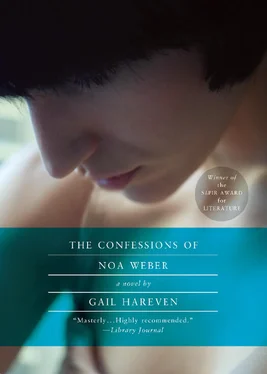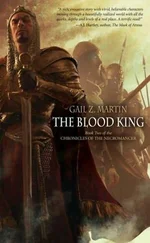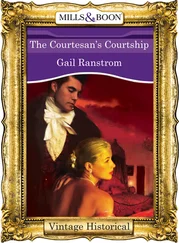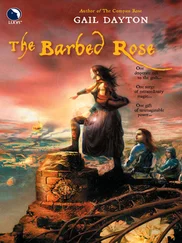Perhaps this is how we continue to love the dead, but Alek wasn’t dead, and the living Alek gave me strength.
I did not lack for enthusiasms in those years, but all these sometimes even feverish enthusiasms were accompanied by an awareness of transience. As if they were flare-ups that had to be experienced until … until what? I don’t know. Until the flammable matter was consumed. Until matter was consumed.
I said to myself that a table was a table was a table, that a wolf moon was only a moon … that if there was a purpose at all its name was justice, and that the taste of heaven was my daughter laughing in the sea.
For weeks or months I succeeded in turning ordinary everyday existence into a manifesto and a creed: I believe in one single reality and no other. I believe in doing good: now I have to solve problems in the office, to locate Jeff, to buy meat at the butcher’s on the way home, to check if Tami has invited Miriam, too, to remember to say I’m sorry to Hagar. That is the good. But then there was a shift in the weather, a different air blew in, a ray of light vanished, a thin, mean moon hung in the sky, and all of a sudden I filled with that oceanic yearning that absolute justice cannot satisfy.
I missed Alek, his voice, his accent, his concentrated body, the touch of his hand on my face, the way he leaned against the marble counter in the kitchen, today too I fold in half when a concrete memory and a no less concrete absence clutch at my diaphragm, only now I can sometimes rise on a wave and ride with it, and from the height of the wave it seems that my longing for him is only a gateway to some other yearning, to which this yearning happened to attached itself.
What did I want? For what was I yearning? What do I wish for now? I have already said: for some crack in the sky, nothing less. For some crack which will open up to me for eternity. When the absolute will be revealed and everything will be filled with the absolute and the streaming and the sealed light which will rise out of matter. Increasingly I see acts as a way, increasingly I see the body as a vessel … sometimes for hours I can feel the light imprisoned inside it, waiting for the light from above which will never disappear again. In this light sometimes for hours I see stones giving birth to stones and trees giving birth to trees.
In Moscow about which I know nothing, in Moscow where I am wordless as a baby and helpless as a baby, I keep seeing this vision of objects without a name and without a background, and there and with him I too with the harsh light inside me give birth to myself as a being without a background.
“Yearning,” however “oceanic,” is not evidence of the existence of something to yearn for, and the body is not a vessel.… I haven’t got the strength any more to say everything that should be said, like a reflexive apology after an epileptic fit, and nevertheless here I have said it again.
Like a dog running around in circles after its own tail and biting it, I try to get rid of the delusion that I experience as my soul.
I could have resigned myself to the “oceanic yearning,” and in the end no doubt I will resign myself.
I could have resigned myself to the sickness of my secret love.
But what I will never resign myself to, and the reason why I keep tearing at myself and my flesh, is the fact that in my visions there is a guard at the gates of heaven. That a man stands between me and what cannot be described in words.
Even if I stood myself up against the wall, I would not be able to give any comparative description of him, but I can put it like this: if at the age of seventeen, eighteen, I saw him as the wisest of men, Alek of the year ’72 seems to me now touchingly young and confused, perhaps like I seemed to him then. Since then I have met wiser men, and especially women, handsomer men and so on and so forth, and none of it matters a damn, because only he in all his appearances splits open the spine of words in me, and only he makes trees burst forth from trees and stones burst forth from stones for me.
If these words have any meaning … the spine of words … what lies beyond … I want to see the stone and the tree and myself bursting forth without him. I have to learn to see them without him.
On the second of January 1991, when the world crossed off days from the American ultimatum, Alek phoned and his voice sounded so close that for the first moment I thought that he was in Jerusalem. He said that what was happening in the gulf didn’t look good to him, that Saddam Hussein was totally insane, the West apparently didn’t know how insane, it was hard to understand when somebody was totally insane. And perhaps he was worrying for nothing, but maybe I should come with Hagar to Paris? …
Where would he put us up? At his mother’s? With friends? Had he talked to Ute about it? I didn’t ask. Hagar was in the Negev on a year’s national service, I was in bed with bronchitis which may have infected my lungs. I told him that it was impossible for us to come, but it would be all right, perhaps Saddam Hussein was insane but we at least were quite sane in our way. Only after he had repeated his invitation and I had declined it again, he asked if I thought it would interest Hagar to meet her grandfather, and since my feverish head was stuck in Paris, I thought that he was talking about Marina’s husband Genia, and that it was to them that he was suggesting we come.
But Alek wasn’t talking about Genia but about his father Abram Ginsberg, who had immigrated, it transpired, to Israel at the end of that summer. “Perhaps it wouldn’t be too much trouble? He’s living with friends now in Kiryat Menachem.” “Yes … of course,” I said still confused, “I’m sure Hagar would be happy to go and see him, it would interest her, I’m sure she’d be happy, but how exactly will she talk to him? Do those friends of his know a bit of Hebrew?” His friends, said Alek, were old and didn’t know a word of Hebrew, and apparently they wouldn’t learn any now, but Abram might remember something. “Where did he learn Hebrew?” I asked, and then he told me his father’s story, or at least the outline that he knew, and it was the most fluent story I had ever heard Alek tell.
Abram Ginsberg was a student at gymnasium, not yet sixteen and already wild and rebellious, when he forged some papers and ran away from Vilna to the Land of Israel. For two years he worked and knocked around here, in the Galilee apparently, before he decided that nothing serious would come of the Zionist experiment and went to join the real revolution in Russia. Others who did the same thing were liquidated or died slowly or quickly in camps and resettlement plans, but Abram survived, it wasn’t clear how, “I didn’t ask questions, and when I did ask I never got answer, I know that for some time he worked as a truck driver, transporting timber in the North, in the taiga, the devil knows.… Up to the war and after he was on the move most of the time.”
Alek was born “in the war, during an evacuation, almost in a railway station,” and when his father returned as an “official hero” he joined his wife, her mother, and their son, and “registered in Sverdlovsk. My mother was studying at university, he studied a little at the Agricultural Institute, but then he left again, after the war he had friends in all kinds of places, and my mother met Genia, who had a room in Moscow.” Alek was five when they moved to Moscow, and he remembered his father mainly from photographs. “He looked like a real Russian, not like me, completely different from me. You can’t tell he’s Jewish.”
Ten o’clock at night, for over two and a half years I hadn’t heard from him, and Alek was giving me the outline of a five-hundred-page novel over the phone, strewn with allusions I couldn’t interpret and full of gaps I had no idea of how to fill in. Dazed by fever and pills, under the threat of chemical missiles which Alek’s concern made me take more seriously — this time I didn’t feel young, healthy, white-toothed, rudely constructive and far from any comprehension of the tragic, as I sometimes felt with him. The history that had devastated other places was coming closer, gathering force as it advanced, and threatening to reach my home.
Читать дальше












